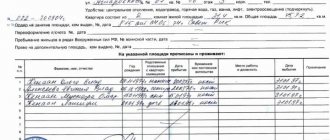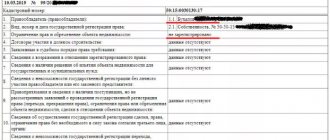Last modified: February 2021
It is not difficult to discharge yourself or to discharge one of the residents voluntarily and does not require going to court. A statement of claim for deregistration from an apartment is drawn up to carry out the procedure forcibly and the refusal of the resident to deregister on a voluntary basis or if his actual location is unknown. The court does not carry out the deregistration directly, but without a verdict rendered by it, the authorized bodies of the Ministry of Internal Affairs do not have the right to deregister.
Reasons for discharge
The tenant’s refusal to voluntarily deregister requires consideration of the case in court. The owner, individually or a group of persons collectively, draws up a statement of claim in order to expel a citizen from the apartment with a mandatory statement of reasons. If the court considers the above reasons to be unfounded, then the case will not be considered, and the negligent neighbor will continue to have a residence permit. The grounds for filing a claim include:
- Actual absence over a long period, including:
- living in another territory without registration;
- unknown location and impossibility of communication for negotiations.
- Termination of legal grounds for registration in a specific living space due to:
- divorce from the owner;
- deprivation of parental rights;
- challenging paternity.
- The presence of outstanding debt for utility services, especially in the absence of privatization and ownership of the facility by municipal authorities.
- Violation of rights and disrespectful attitude towards neighbors, expressed in:
- non-compliance with public order rights, including noise and receiving guests at the wrong time of day;
- use of living space other than for its intended purpose as a warehouse, territory for doing business, receiving visitors in order to resolve production issues;
- immoral behavior, including drinking alcohol, smoking in public areas and using obscene language.
- Damage to property, damage to parts and communications.
- The owner's intention to privatize the residential premises.
- Finding the facility in disrepair with subsequent demolition and resettlement of residents.
A claim for deregistration from an apartment must contain grounds supported by documents, a sample drafting and a specific list of attachments depends on the reason for deregistration. Not only owners, but also employers can act as plaintiffs.
To maintain order, you must first warn the citizen in writing in accordance with Article 132 of the Code of Civil Procedure of the Russian Federation, then go to court. The exception is the absence of a citizen in the territory of registration, including serving in the Armed Forces and serving a sentence in prison.
Legal Information
When moving to another place of residence, a person must check out from the previous one. This obligation is enshrined at the legislative level. The reasons for eviction can be very varied. Their full list is reflected in Art. 7 of the Law of the Russian Federation of June 25, 1993 No. 5242-1:
- Moving to another city, region, etc.;
- Finding yourself in an unknown place;
- Death of a citizen registered in the apartment;
- Loss of the right to use living space;
- Illegal registration;
- Change of nomadic routes;
- Stopping the wandering lifestyle;
- Detection of fake registration.
Algorithm for the procedure
Filing an application to the court to expel an unwanted tenant from an apartment and the procedure for forced expulsion includes the following algorithm of actions:
- Statement of the fact of the need for discharge due to violation of the order of residence, termination of grounds due to loss of family ties with the owner.
- Drawing up a claim with delivery against signature to the resident and preparation of documentation for filing with the court if the claim is ignored or the citizen is absent, including:
- attracting witnesses to testify in court;
- collecting certificates from utility services about the presence of overdue payments on the corresponding personal account;
- conclusions of law enforcement agencies on violations of law and order;
- confirmation of absence and parallel appeal to the judicial authorities in order to recognize the citizen as missing.
- Direct submission of an application for discharge from an apartment, a sample of which to fill out and a list of attached documents depends on the reason.
- Participation in court proceedings and subsequent receipt of a decision. If you disagree with the wording or refuse, an appeal to higher authorities is possible.
- Submitting a court decision to a department of the Ministry of Internal Affairs on forced deregistration with subsequent deregistration without the participation of the resident. The stamp in the passport will play the role of fiction, meaning nothing by legal standards.
The waiting period for acceptance or refusal, indicating the reasons, is accepted by the district court within five days from the date of submission of the application for discharge from the apartment, the form of which is filled out manually or using a computer. Participation in court proceedings is voluntary; the court’s decision is influenced by additional arguments provided regarding the need for discharge.
Application details
The application itself is drawn up according to the established template. This form for the federal migration service is Form No. 6. In it, the applicant provides the following information :
Have a question or need legal help? Take advantage of a free consultation:
Free legal advice by phone:
8 (Moscow and Moscow Region) 8 (St. Petersburg and Leningrad Region) 8 (Regions of the Russian Federation)
- Name of the territorial department of the Federal Migration Service to which the application is submitted;
- Full details of the last name, first name and patronymic of the person wishing to be discharged (legible, without abbreviations);
- Passport data, including series, number, date and issuing authority. The department code is also indicated;
- If the information is filled out by a person who represents a minor or incompetent person, the representative’s data is similar to that presented in the second and third paragraphs;
- Address of residence according to an identity document;
- Signature and date of completion.
Rules for drawing up and filing a claim for an extract
When filing a claim, you should take into account the jurisdiction corresponding to the district court serving the geographically located apartment. The application form for deregistration from an apartment includes:
- The header of the document indicating the details of the addressee - the district court with the exact name and legal address and personal data of the plaintiff indicating the location of the apartment and known information about the location of the defendant in case of absence from the disputed territory.
- The main narrative part describing the essence of the problem, the chronology of events regarding registration, the awareness of the resident by sending a written complaint and its subsequent ignoring, the need for discharge due to current circumstances, confirmed by documents and inviting witnesses to testify.
- The final part containing a request to satisfy the claim due to damage caused to the main tenant and other registered persons.
Samples of statements of claim for discharge from an apartment (by situation)
Statement of claim for the ex-husband's removal from the apartment: Sample application for removal from the apartment through the court. Blank (68.2 KiB, 4,880 hits)
Statement of claim to expel ex-husband from apartment. Blank (66.6 KiB, 1,916 hits)
Download samples: Sample claim for the discharge of a child through the court (18.9 KiB, 963 hits)
Claim for discharge from a municipal apartment (22.2 KiB, 619 hits)
Sample claim for ejectment from an apartment by a non-owner (23.6 KiB, 3,773 hits)
The form for a statement of claim for discharge from an apartment must contain a list of attachments of required documents. Partial copies are attached to the statement of claim, and the originals are presented in court proceedings.
How to expel a non-owner from a house without consent through the court
Is it even possible to discharge a person registered in the house if he does not want to?
The legislator provides such an opportunity. In principle, this procedure is not very different from the similar one for checking out of an apartment, however, there are some nuances that you need to know about in advance.
If the registered person does not give consent to eviction, then you must go to court. It is not worthwhile to apply any measures to this person on your own, since a criminal case may be initiated against you under Art. 330 of the Criminal Code of the Russian Federation.
Supporting documents
- How to check out of an apartment going nowhere: important rules for checking out without registration
Among the required documents for the forced deregistration of a tenant and inclusion in the office-work process, simultaneously with the statement of claim for deregistration from the apartment, the plaintiff must provide:
- General passport identifying the applicant.
- The title document for the apartment is an extract from the Unified State Register of Real Estate, with the exception of non-privatized housing owned by the municipality.
- The title document for the property, depending on the method of obtaining the right:
- purchase and sale agreement when purchasing on the secondary market;
- deed of gift when received from the donor as a gift;
- certificate of privatization in case of acquisition of property through privatization;
- equity participation agreement with a construction organization when purchasing housing on the primary market.
Arbitrage practice
In most cases, courts satisfy plaintiffs' requests to deregister defendants. Here are some examples of real cases:
- The woman decided to recognize the defendant as having lost the right to use the apartment and deregister him through the court. The man has not lived in the house for a long time, does not pay utilities, his personal belongings are not there (Decision No. 2-446/2020 2-446/2020~M-304/2020 M-304/2020 dated April 23, 2021 in case No. 2-446/2020). The demands were partially satisfied: the man was recognized as having lost the right to use, but was not removed from the registration register.
- The plaintiff wanted to expel her ex-husband from her apartment. He did not live there, but he did not take any action to deregister. By decision No. 2-937/2020 2-937/2020~M-626/2020 M-626/2020 dated April 14, 2021 in case No. 2-937/2020, the requirements were satisfied.
- The plaintiff bought housing with the previous owner registered as the defendant, demanded deregistration and recognition as having lost the right to use the residential premises. By decision No. 2-454/2020 2-454/2020~M-273/2020 M-273/2020 dated April 27, 2021 in case No. 2-454/2020 the claim was satisfied.
Some nuances
There are a number of situations that concern our readers most. Let's take a closer look at them.
Discharge a spouse through the court after a divorce
Divorce means the loss of family ties between people, and accordingly, such husband/wife loses the right to live on the personal property of the second spouse. This only applies to situations where the apartment belongs entirely to one of the former spouses, that is, it was:
- given to him during marriage or before marriage;
- passed to him by inheritance during marriage or before marriage;
- purchased before marriage;
- purchased during marriage under a prenuptial agreement.
If the apartment belongs to both spouses (bought during marriage), then you will have to first resolve the issue of dividing the property, and only then with eviction.
Discharge a relative without consent
If we are talking about family members (children, spouses and parents), then they can be evicted without consent only after the main owner has changed. That is, you will first have to re-register the apartment to another person, and only then file a lawsuit for eviction.
If we mean more distant relatives, who most often live temporarily by verbal agreement or use formal registration, then it will not be difficult to write them out through the court. It is necessary to prove their actual non-residence at this address, inappropriate behavior, living separately or other compelling circumstances - all according to the standard scheme.
Discharge a minor child
It is impossible to discharge a minor child who is a relative of the owner. In this case, the degree of relationship does not matter - it can be either one’s own son or daughter, or grandchildren, nephews, cousins or brothers.
In this situation, you will first have to change the title owner of the apartment, and only then ask the court to discharge such a child from the home.







